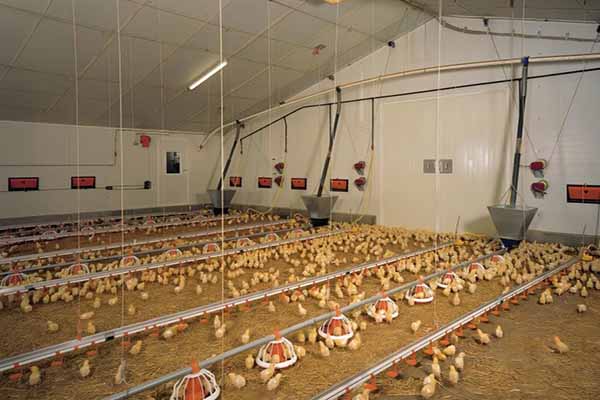Kienyeji Chicken Farming in Kisumu: A Comprehensive Guide
Time : 2025-05-13
Kienyeji chicken farming has gained significant popularity in Kisumu, Kenya, as more and more farmers are discovering the numerous benefits of raising this indigenous breed. If you’re considering venturing into this industry, you’ve come to the right place. In this article, we’ll delve into the world of Kienyeji chicken farming in Kisumu, covering everything from the basics to advanced tips. So, let’s get started!
Introduction to Kienyeji Chicken Farming
Kienyeji chickens are a type of indigenous chicken native to Kenya. They are known for their hardiness, disease resistance, and excellent egg production. These chickens are highly sought after due to their rich, flavorful meat and the numerous health benefits of their eggs.
Why Kienyeji Chicken Farming in Kisumu?
Kisumu, being one of the largest cities in Kenya, offers a favorable environment for Kienyeji chicken farming. Here are some reasons why:
1. Abundant Land Availability: Kisumu has vast stretches of arable land, making it ideal for chicken farming.
2. Market Demand: The city’s growing population has increased the demand for fresh chicken meat and eggs.
3. Climate: The temperate climate of Kisumu is conducive to raising chickens year-round.
Getting Started: The Basics
1. Selecting the Right Location
The first step in Kienyeji chicken farming is to find a suitable location. Look for a spot that is easily accessible, close to your home, and has a reliable water source. Ensure the area is free from predators and has enough space for the chickens to roam.
2. Building the Coop
A well-constructed coop is essential for the health and well-being of your chickens. The coop should be large enough to accommodate all the chickens and provide them with enough room to move around. Here are some tips for building a Kienyeji chicken coop:
– Material: Use strong, weather-resistant materials like iron sheets or bamboo.
– Ventilation: Ensure the coop has good ventilation to keep the chickens cool during hot weather.
– Flooring: Use a raised floor to prevent moisture from accumulating and to keep the chickens clean.
– Nesting Boxes: Provide nesting boxes for the hens to lay their eggs.
3. Obtaining Chickens
You can obtain Kienyeji chickens from local breeders or hatcheries. It’s important to source your chickens from a reputable supplier to ensure you get healthy, disease-free birds.
4. Feeding and Watering
Kienyeji chickens are omnivorous, meaning they eat both plants and animals. A balanced diet is essential for their growth and production. Here are some feeding tips:
– Feed: Use a mix of corn, soybean meal, and vitamins and minerals to ensure a balanced diet.
– Water: Provide fresh, clean water at all times. Chickens need plenty of water, especially during hot weather.
Advanced Tips for Successful Kienyeji Chicken Farming
1. Health Management
Regular health checks are crucial for keeping your chickens healthy. Here are some tips for maintaining good health:
– Vaccinations: Vaccinate your chickens against common diseases like fowl pox and Newcastle disease.
– Medication: Use antibiotics and other medications only when necessary and under the guidance of a veterinarian.
– Sanitation: Keep the coop clean and free of waste to prevent disease.
2. Breeding
Breeding Kienyeji chickens can help improve the quality of your flock. Here’s how to get started:
– Select Breeding Birds: Choose the healthiest, highest-producing birds to serve as parents.
– Breeding Techniques: Learn about artificial insemination and other breeding techniques to maximize your chances of successful breeding.
3. Marketing Your Products
Once you have a steady supply of Kienyeji chickens and eggs, it’s time to market your products. Here are some strategies:
– Direct Sales: Set up a stall at local markets or sell directly to customers.
– Online Marketing: Create a website or use social media platforms to reach a wider audience.
– Wholesale: Partner with local restaurants and supermarkets to increase your sales.
Conclusion
Kienyeji chicken farming in Kisumu can be a profitable venture if done correctly. By following the tips outlined in this article, you can set up a successful chicken farm and enjoy the many benefits that come with it. Remember, patience and dedication are key to long-term success in this industry.
Tags












